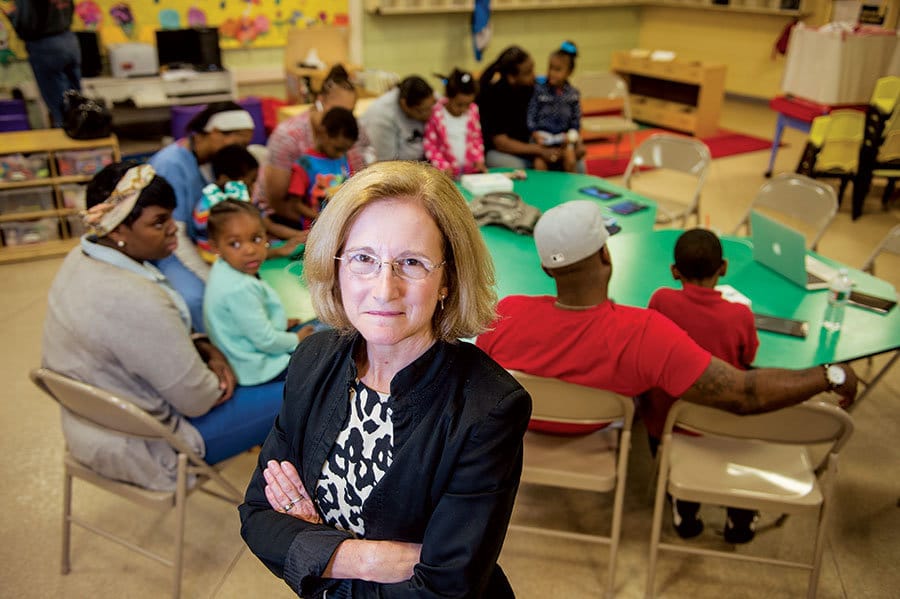Next Century Cities Highlights State Action for Broadband, Co-Sponsors Broadband Conference in Idaho
Next Century Cities this week highlights broadband programs in five states, in advance of the “West Central Mountains High Speed Internet Conference” on May 17 in McCall, Idaho. The Friday event is being co-sponsored by the West Central Mountains Economic Development Council and Next Century Cities.

Next Century Cities this week highlights broadband programs in five states, in advance of the “West Central Mountains High Speed Internet Conference” on May 17 in McCall, Idaho. The Friday event is being co-sponsored by the West Central Mountains Economic Development Council and Next Century Cities.
With 202 city members, the non-profit Next Century Cities helps municipalities leverage gigabit-level internet for economic development and enhancing civic participation. The organization also recently announced that Executive Director Deb Socia, who founded the organization in 2014, has been selected as the CEO of the Enterprise Center in Chattanooga, effective July 2019.
Socia started the non-profit Tech Goes Home in Boston a decade ago and will succeed Ken Hays, who is retiring, as the director of the center. The Enterprise Center capitalizes on Chattanooga’s role as a gigabit city in promoting the 140-acre Innovation district in downtown Chattanooga.
In a blog post this week, Next Century Cities highlighted three key things that states can do to promote broadband: Don’t interfere with cities, spend broadband funds, and help streamline One Touch Make Ready, which has also recent been dubbed “Climb Once” legislation to facilitate pole attachments by new telecommunications entrants.
Among the state programs highlighted included (as described by Next Century Cities):
- Minnesota’s Border-to-Border Broadband Infrastructure Grant Program funds expansion to un- and under-served portions of the state. Eligible entities – notably, including municipal networks and cooperatives – are able to receive up to $5 million to cover up to 50 percent of a project’s infrastructure cost, including project planning, permits, labor, and more. Projects funded by the grant have ranged from connecting a dozen locations to connecting thousands.
- Maine’s ConnectME program offers infrastructure grants up to $100,000 for projects that build out last mile service to communities currently unserved by 25/3 Mbps speeds. The program also offers planning grants to municipalities and local or regional community organizations in order to fund plans to identify and pursue local broadband needs.
- Colorado’s Broadband Fund provides grants to private ISPs or to telephone or electric cooperatives for new infrastructure builds in areas not currently served by 25/3 Mbps. Colorado’s program is unique because it incorporates progressive right of first refusal language, in which an incumbent provider must match the speed and price of service that a new entrant is offering in order to exercise its right of first refusal.
- New York’s Broadband Program uses a reverse auction method to allocate $500 million worth of grants to un- and underserved areas. Eligible projects must involve a partnership with a private entity, and funds can be used for up to 80 percent of capital expenditures for new investments or network upgrades.
- West Virginia has funneled Community Development Block Grant funds from the U.S. Department of Housing and Urban Development into supporting broadband deployment throughout the state. Most recently, the state announced that a total of $2.4 million in CDBG funds in West Virginia would go toward broadband projects.
With regard to the West Central Mountains High Speed Internet Conference on Friday, May 17, from 1 p.m. to 5 p.m. MT, panelists at the event will include Andrew Mentzer, executive director of the council, and city officials Bruce Patterson from Ammon, Idaho; Mike Knittel from Emmett, Idaho; Jeremy Pietzold from Sandy, Oregon; Rich Sykes from Mountain Home, Idaho; Chris Curtin from McCall, Idaho.
Others participating in the program will be Robert Peterson from Entrypoint Solutions, Mark Erikcson of the Economic Development Authority of Winthrop, Minn., and Deb Socia, Chris Mitchell and Cat Blake from Next Century Cities.
(Photo of Deb Socia while at Tech Goes Home, from the Christian Science Monitor.)









Member discussion